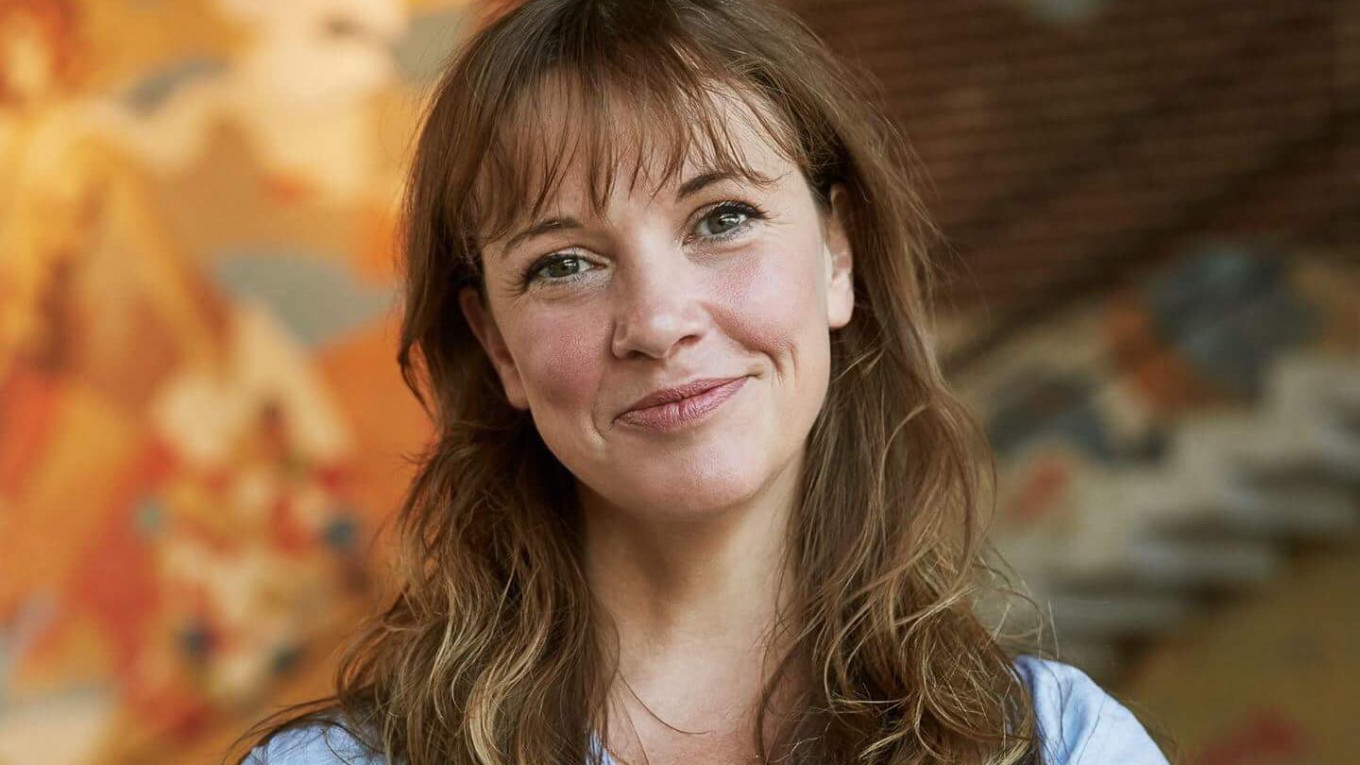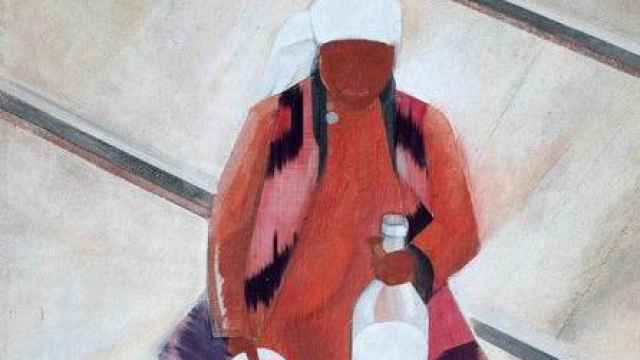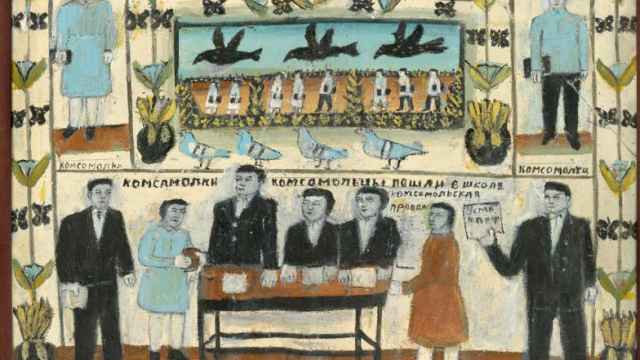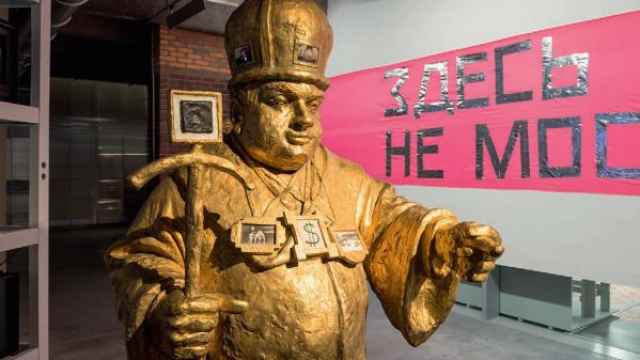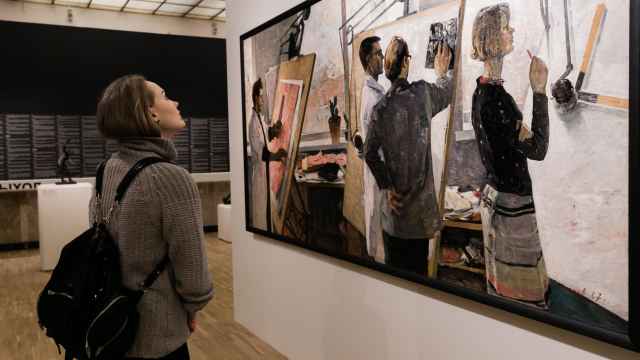Born in Reading, just outside of London, Kate Fowle has
already worked in several countries. She was an international
curator at the Ullens Center for Contemporary Art
in Beijing, and ran one of the first master’s programs in curating
in the U.S. before finding her place as the chief curator at the
garage Museum of Contemporary Art in Moscow.
I came to russia with my school to study economics in
1986. I was 15-16 at the time. We went to Moscow and St. Petersburg
and took the train. We learned about the economics
of communism. And that was my only visit to Russia before I
accepted Garage’s invitation.
I’ve moved three times during my four years here, but all
within the same neighborhood – Patriarch’s Ponds. I really
like the neighborhood because it’s walkable and I enjoy the
flexibility to move about without using public transport or
cars, because we spend enough time in traffic anyway. I really
like the fact that you can go sit at the pond and I’m into running.
It’s an area where you can actually go outside and you
don’t have to actually do anything to be outdoors and enjoy it.
Twins has been a big favorite for the last couple of years.
I’m a vegetarian but I eat fish and the menu is fantastic for
that, and it’s always very fresh. It’s light, it’s the kind of thing
you can eat without feeling like you are going to fall asleep
straight afterwards. I like the fact that they have an outdoor
courtyard, it’s great in the summer to be able to sit out there.
Twins, 13 Malaya Bronnaya Ulitsa, Metro Mayakovskaya
Pinch is somewhere i enjoyed last year. It’s a cocktail bar
but they have a great breakfast there. I’ve had a few work
meetings there because we like to put Garage visitors up in
a nearby hotel. It was extremely popular last year, so often
in the evenings it was so loud that it wasn’t working, but it’s
getting a little bit quieter now.
pinch, 2 Bolshoi palashevsky pereulok, Metro Tverskaya
I was fascinated with the development of vDnKh. I first saw it
when I came for an interview with Garage in 2012. There was basically
a bit of market, a whole lot of shutdown places, it was like
a kind of wasteland. And now there’s a gradual development that
kind of goes back to what the plans were in the 1960s. For me it’s
just interesting because it’s one of the places to watch how a city
redevelops its leisure time and how that works.
VDnKh, Metro VDnKh
People either love or hate Moscow, because it’s a very particular
city, it has heavy architecture. What I love about it
is that summer here is the best kept secret, summer here is
better than in many, many places, because there’s so much
open space. It’s a very green city for a city of this density. And
in four years I saw this place inventing and reinventing itself,
constantly in transition.
In fact, the [russian] sanctions [on Western food imports]
did restaurants a lot of good. Now there’s a lot more “farmto-table,”
kale is now available – I used to grow my own and
now I don’t have to. I did this with one of my colleagues here:
Her parents live just outside of Moscow, so we would plant
the seeds there and then provide the staff with kale. When
you can’t get it – grow it.
I have no complaints about the people. I was told that people
are very stern here, but I find that actually, culturally this
place is much closer to my experiences with Mexico City than
a heavy Eastern European attitude. People’s sense of humor is
wicked and there’s an innate generosity.
A Message from The Moscow Times:
Dear readers,
We are facing unprecedented challenges. Russia's Prosecutor General's Office has designated The Moscow Times as an "undesirable" organization, criminalizing our work and putting our staff at risk of prosecution. This follows our earlier unjust labeling as a "foreign agent."
These actions are direct attempts to silence independent journalism in Russia. The authorities claim our work "discredits the decisions of the Russian leadership." We see things differently: we strive to provide accurate, unbiased reporting on Russia.
We, the journalists of The Moscow Times, refuse to be silenced. But to continue our work, we need your help.
Your support, no matter how small, makes a world of difference. If you can, please support us monthly starting from just $2. It's quick to set up, and every contribution makes a significant impact.
By supporting The Moscow Times, you're defending open, independent journalism in the face of repression. Thank you for standing with us.
Remind me later.


